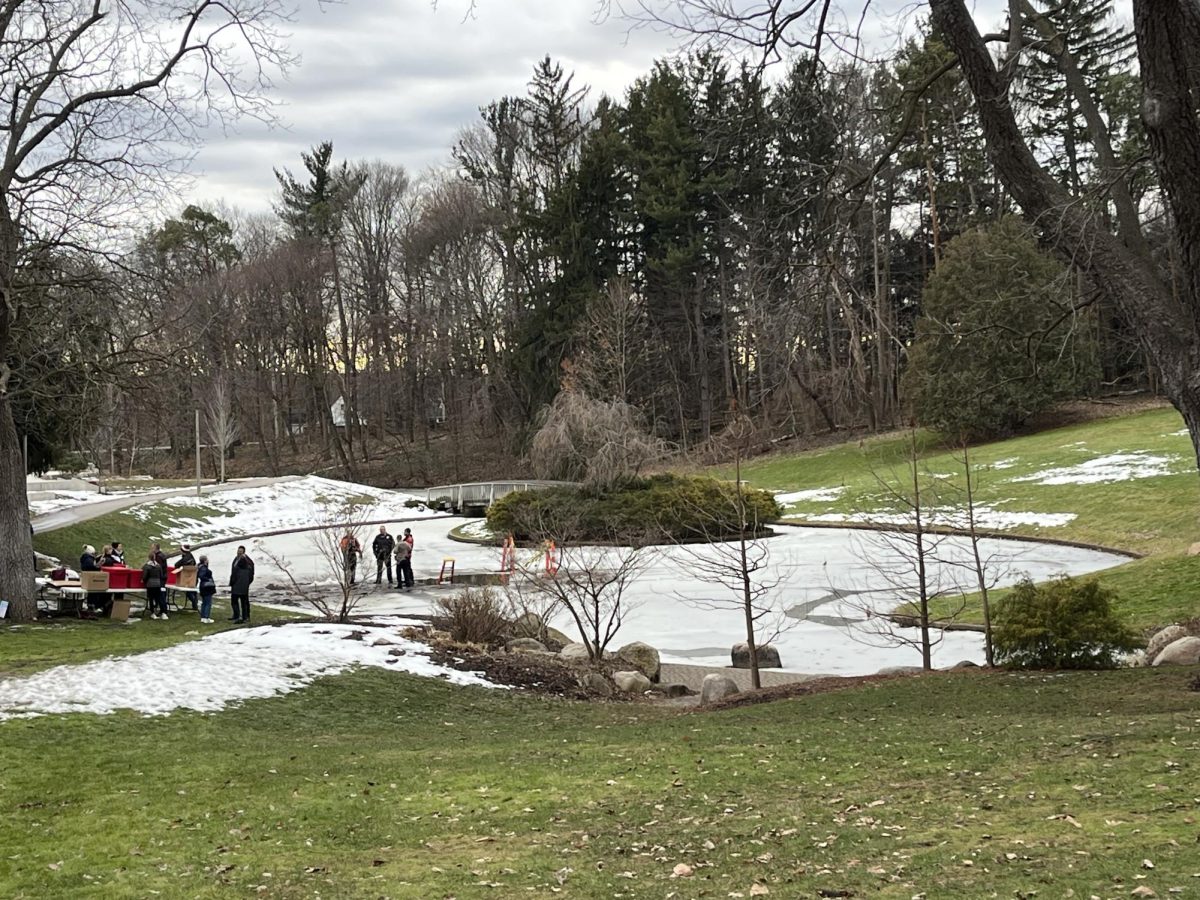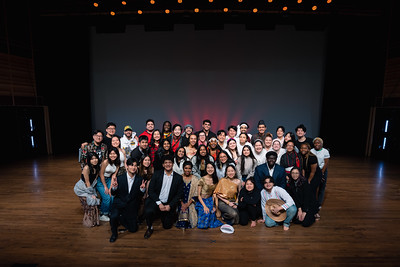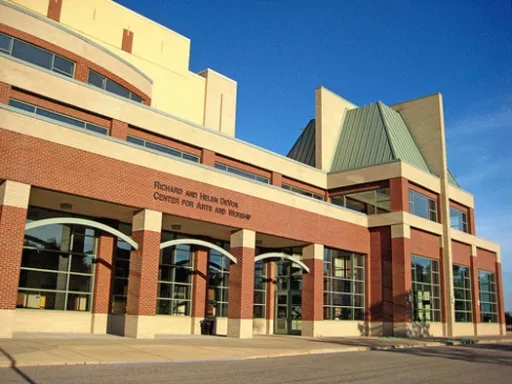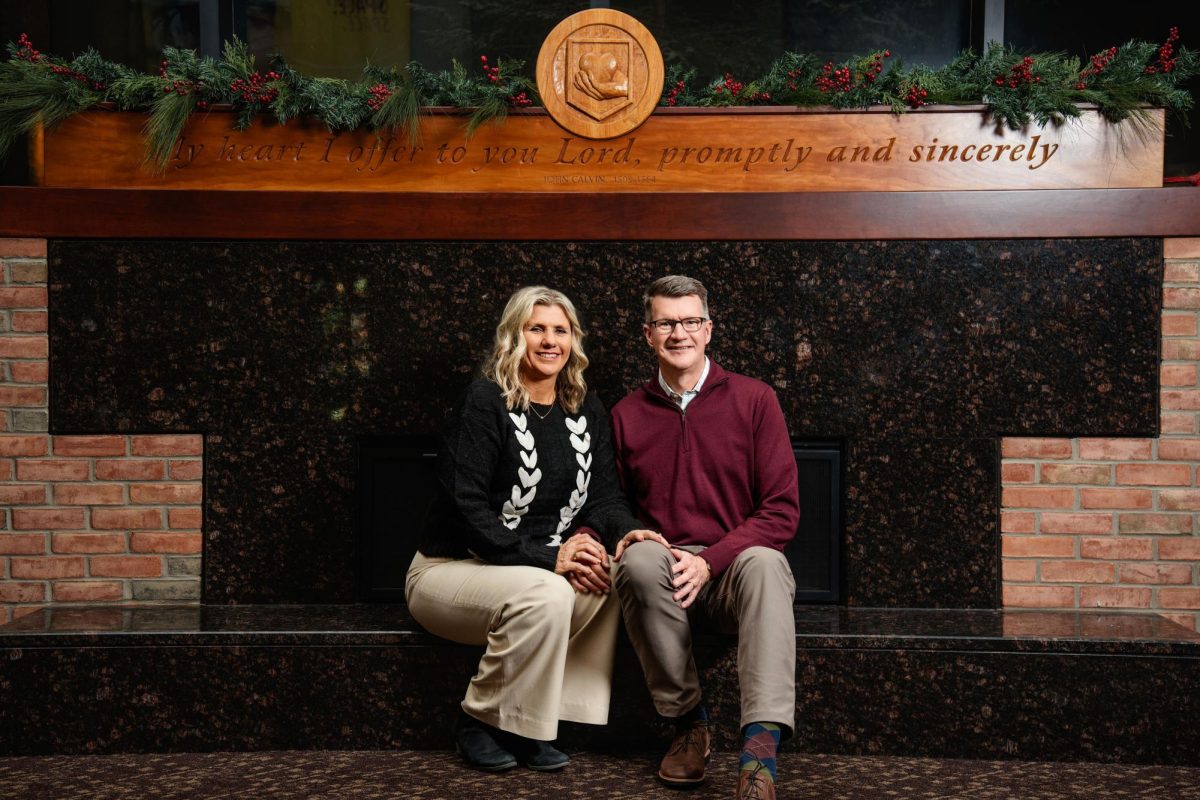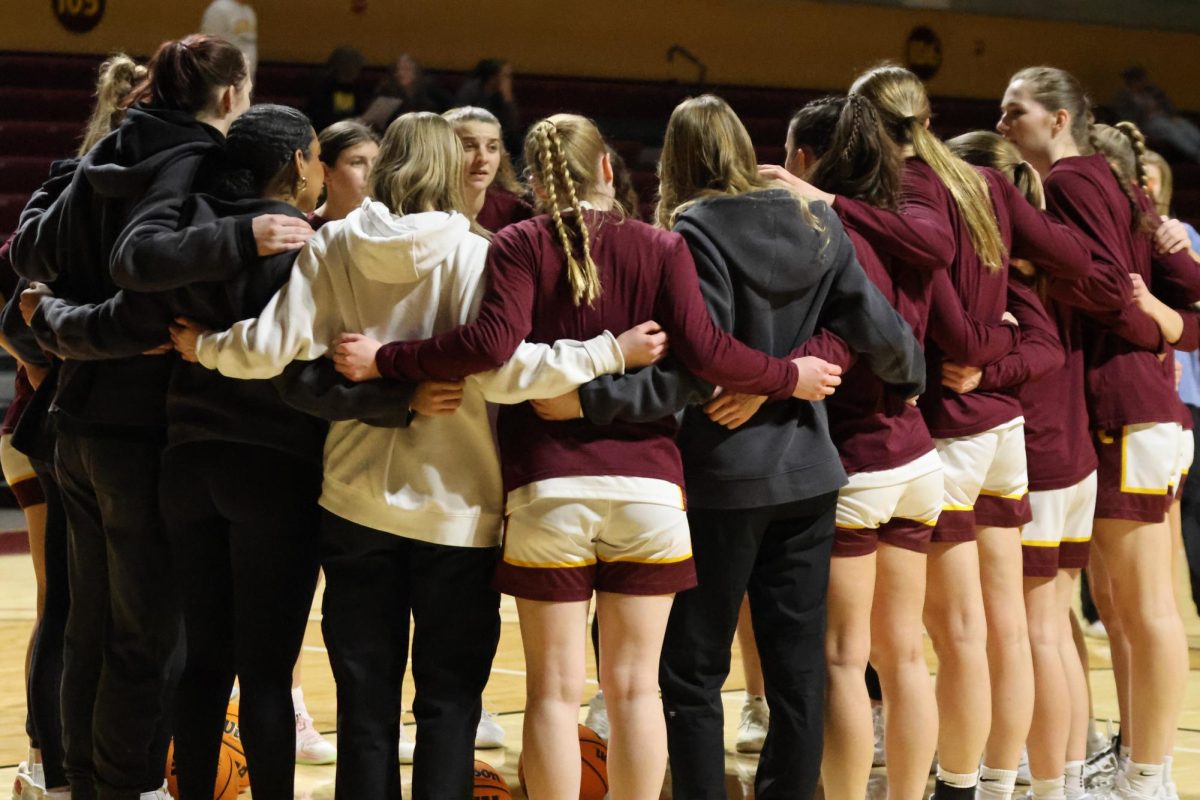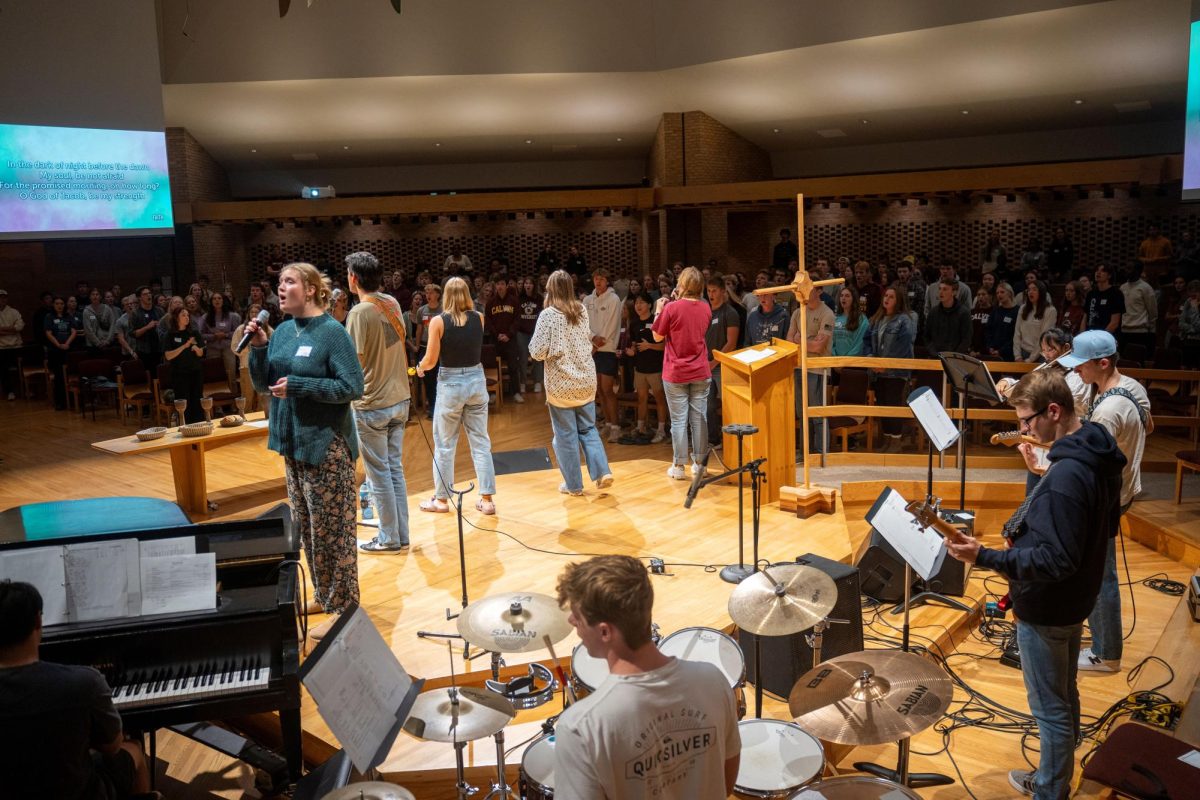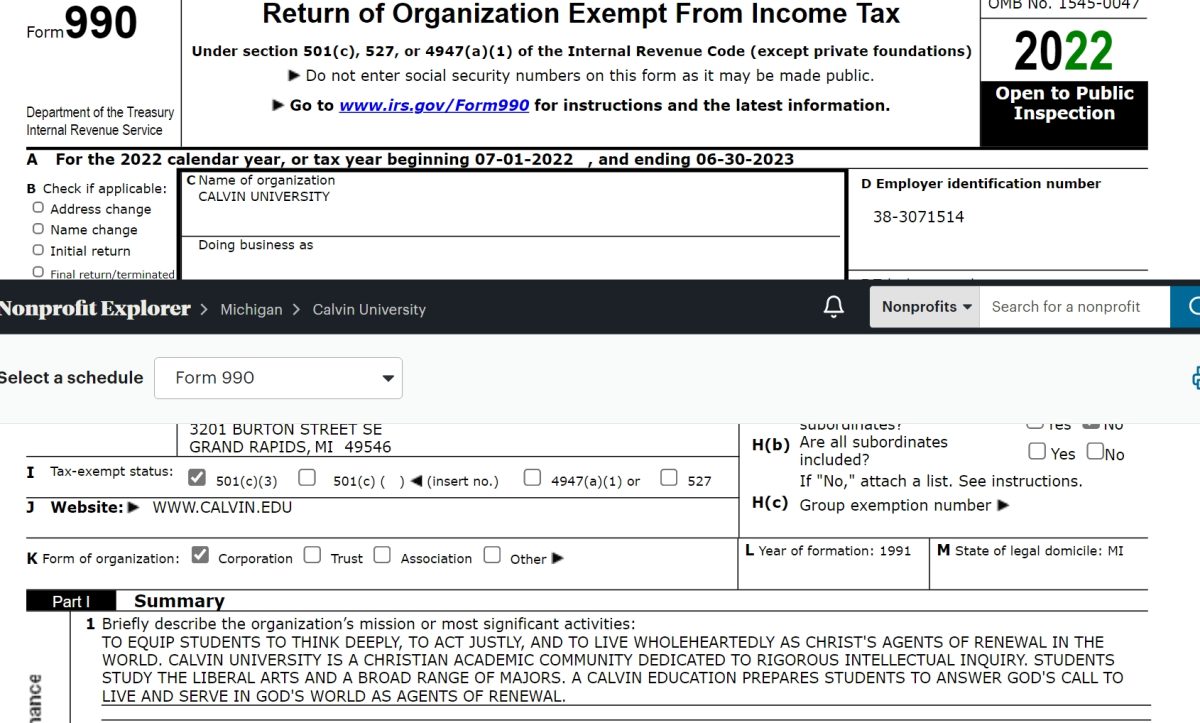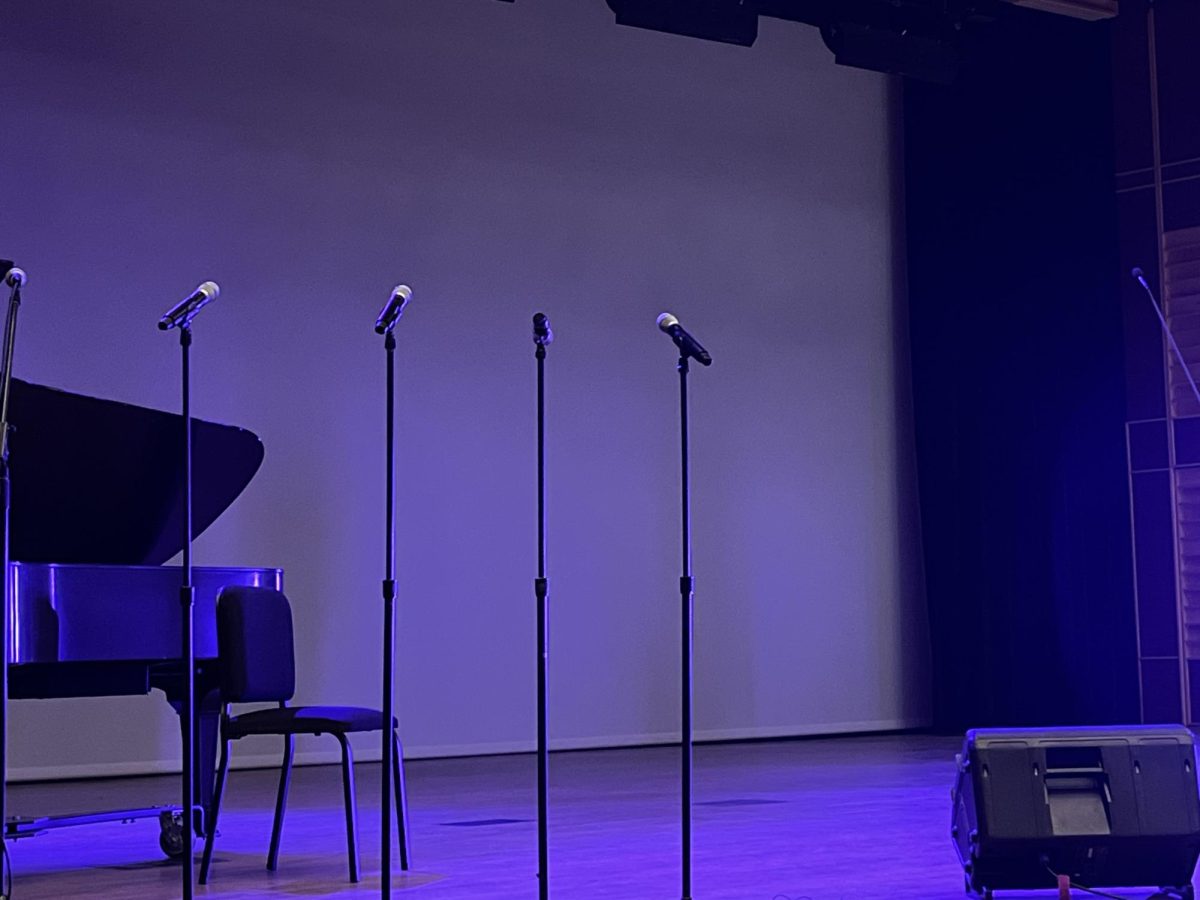Between Monday, Nov. 4 and Sunday, Nov. 10, Calvin’s music department featured four separate choir concerts, each showcasing a distinct vocal ensemble. These concerts come at a time of dynamic change for music at Calvin, including the reintroduction of a music education major and the hiring of a new Director of Choral Activities, Dr. Mark Stover.
LEGACY
According to Stover, Calvin has a rich legacy of performing choral music. Capella, which was formed in 1935 by Professor Seymour Swets, is Calvin’s oldest existing choir but it has always been accompanied by several other choirs of various forms. More recently, Gospel Choir was founded in the 1980s as a student organization by Scott Davis, and has since grown into a prominent for-credit ensemble in its own right. Calvin now features four student-only choirs (offered as ensemble courses), the Oratorio Chorus (made up of students and community members), the Alumni Choir, and two a-capella club choirs.
The department is one with a rich history, and Stover feels this legacy strongly. Stover said that one of his focuses is to “honor the legacies of the incredible people who have gone before us here in these roles — people like [former Gospel Choir director] Charsie Sawyer, [former Director of Choral Activities] Pearl Shangkuan, Joel Navarro, and Anton Armstrong.”
Gospel Choir director Nate Glasper Jr. also feels the presence of this legacy, saying that “students are benefiting from it, and they’re growing and learning about different styles, different cultures, [and] the history of music” thanks to the diversity that has grown in the department over its history. Glasper emphasized the value of diversity in the department, saying that “there’s something rich about each choir.” Madeline Witvliet, co-president of Capella, added that “it’s a joy to be part of something that’s had such a high degree of excellence for such a long time.”
Glasper also emphasized the power of being able to create a worship experience by singing sacred music for an audience. Glasper said that singing sacred music from throughout history enables students to “realize they are part of a bigger picture.” Gospel Choir co-president Lilly Winiarski agreed, citing Gospel Choir’s tagline that “it’s not just a choir; it’s a worship experience!” Winiarski also spoke about positive experiences she has had visiting churches with Gospel Choir, saying that “there’s something really cool about going to those communities…these people love the Lord, and it’s cool that we get to share that.” Stover agreed, saying that “we want to acknowledge and celebrate that part of our identity, which is a rich legacy of music and worship at Calvin over decades.”
PRESENT
According to Stover, there are now over 200 students involved in singing in for-credit ensembles. Campus Choir especially has experienced a resurgence this year. According to Capella co-president Levi Huizenga, there are over 60 more students enrolled in the choir than there were in the fall of 2023. However, Campus Choir is not alone in the energy it’s generating; Witvliet stated that she believes that “there’s so much joy and energy in the department as a whole.” This could be seen in the full houses for the Capella and Gospel Choir concerts, as well as in interest in the department generally. According to Glasper, the student body is “building excitement” towards choral music, and is interested in getting involved in whatever way they can.
Part of this excitement can be attributed to increased awareness of choral events. Gospel Choir co-president Winiarski, who was an orientation leader this August, told Chimes that Stover spoke to freshmen during orientation about opportunities to sing on campus. Huizenga agreed, saying that “we really made an effort to recruit members into choirs at the beginning of the semester.” Furthermore, choirs are increasing their digital presence — but without losing the power of word-of-mouth invitations. Fourth-year Capella member Elle Reynolds said that “it’s really important that we have expanded our digital presence…but it’s that personal invite that really means the most to people, and it really shows that ‘I want you to be there.’”
FUTURE
The directors and students of Calvin’s choirs are not living just in the present though. Glasper said that he believes that “Calvin as a whole is shifting to a new season — turning a new leaf — and I think as a music department, we get to be a part of that shifting.” Stover feels strongly that the legacy and present state of choirs can be used as a launchpad for the future of Calvin’s choirs and music department more broadly. “We want to acknowledge and celebrate that legacy… and let that be a launchpad for how we move forward into the future with enthusiasm and passion.”
The stylistic diversity of the choirs is one area that staff and students feel is beneficial. Glasper emphasized this diversity, saying that “we get to celebrate the diversity of music…and the diversity of gifts among teachers as well.” Cath Kortman, a senior and three-year Women’s Chorale member, also spoke about the benefits of having many different choirs, saying that “it’s really fun to have a specifically SSAA [soprano-soprano-alto-alto] group on campus.” Kortman believes that the different ways the choirs are structured can enable them to draw different groups of people who may have different preferences.
The department is already beginning to focus on drawing these diverse groups of people. A major facet of the department’s focus moving forward is what Stover termed “radical hospitality.” In many ways, this is already present. Winiarski has felt it in Gospel Choir over her time in the ensemble, citing group devotionals before concerts, sharing of personal stories and experiences, and the class retreat as key to building this community. Sophomore and first-year Gospel Choir member Dominique Pierre-Louis agreed, saying that “with choirs here, you can go in ten minutes before class so you can say hi to people and greet everyone… and then you leave, but you leave with people and go to dinner or hang out.”
Stover feels that hospitality can be an effective outreach strategy, saying that “we believe that, regardless of your background or your perception of what Calvin is, if you come and experience what we have to offer, you might just find yourself wanting to come here.” Pierre-Louis and Winiarski agreed, emphasizing the power of what Pierre-Louis called an “inviting culture.” Winiarski said that “if anyone likes to sing at Calvin, there’s going to be an ensemble here for you.” Stover is building his approach around this posture of invitation, saying that “the students are the priority — the student experience and how we create space for belonging across the board. To me, that’s the centerpiece of what we want our program to be about.”



